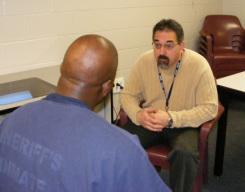Are You the Victim of a Bully?
I once thought a bully was a big kid shaking down a weaker kid for lunch money.

Now I know bullies are adults, too. They’re bosses, parents, teachers, spouses, neighbors, pastors, celebrities, and pro athletes. A bully is an insecure person who uses physical or emotional violence, or the threat of such violence, to exert power and control over others.
I can’t think of anything positive about bullies or their actions.
The bully hasn’t learned how to get what he needs—affirmation, love, self-worth—in authentic relationships, so he resorts to violence and threats. Bullies aren’t “real men” or “strong women.” They’re weak or unskilled in relationships, so they compensate with bravado.
Are You the Victim of a Bully? Read More »


 families. They can be excellent examples for mission clients and usually have special compassion and understanding for those who are still hurting. On the other hand, some are hindered in their efforts to minister to others because of their own codependency.
families. They can be excellent examples for mission clients and usually have special compassion and understanding for those who are still hurting. On the other hand, some are hindered in their efforts to minister to others because of their own codependency.




